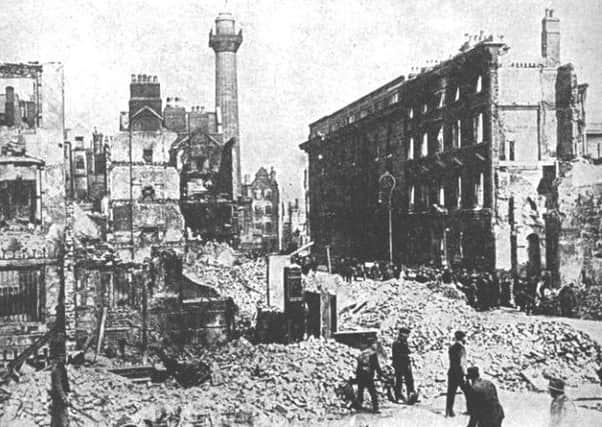Archbishop Diarmuid Martin should note that Patrick Pearse was a psychopath


But who decides what is right for any nation?
Not two percent of a population, who impose a military dictatorship upon a city – as in 1916 – and compel the inhabitants under the threat of death to impart allegiance to them based upon a proclamation deriving its authority from God, and dead Fenians.
Who in the name of sanity would accept that?


Those assembled at the Arbour Hill inter-faith commemorations in Dublin on April 24 appear oblivious to the fact that Home Rule was statute law for most of Ireland in 1916 (its implementation held in abeyance until after the Great War).
Advertisement
Hide AdAdvertisement
Hide AdNo dying ground existed upon which to fight in Ireland in order to avoid national annihilation. Therefore not a scintilla of ethical justification can be advanced for any resort to arms in the name of patriotism.
Among the speakers at Arbour Hill was Archbishop Diarmuid Martin, whose perspective on 1916, and Pearse, reveals a profound historical ignorance, compounded by a smug arrogance that correlates precisely with that of the states ‘ardent appeal to the public’s romantic emotions concerning 1916 during its centenary – a ploy which allows the noble patriotic myth of so-called ‘Easter Week’, another lease of life.
While the dolorous dirge spoken by Archbishop Martin at the event, hardly deserves the dignity of serious comment, his offensive, self-indulgent descent into Patrick Pearse encomium has to be challenged


All that was missing from Father Columbus Murphy’s account of his last meeting with Pearse – solemnly recounted by Archbishop Martin – was a quartet of violins, as Pearse opined: ‘Oh Father, the loss of life, the destruction, but please God it will not be in vain.’
Advertisement
Hide AdAdvertisement
Hide AdOne might reasonably imagine that Fr Murphy might have asked: ‘Why did you do it then my son?’
There is no corroborative evidence that Pearse actually said this, or if he did it was done for propaganda reasons. The sentiments expressed are wholly out of kilter with Pearse’s deranged intoxicated love affair with violence, which he saw as a ‘cleansing thing’, his obsession with blood sacrifice, and his chilling plans for Dublin and its inhabitants – all points of evidence which have clearly eluded Archbishop Martin.
In 1913, Pearse, confided in Denis Gwynn, ‘a fellow-member of the Gaelic League’, that: “It would be better that Dublin should be laid in ruins, than that the existing conditions of contentment, and confident security, within the British empire should continue” (source Dermot Meleady biographer of John Redmond).
Pearse had coldly concluded that Dublin, and its citizens should be drowned in blood.
Advertisement
Hide AdAdvertisement
Hide AdFurther to this, is Pearse’s belief that the citizens of Dublin must ‘atone’ for their forebears failure to save Robert Ement in 1803 (Joost Augusteijn biographer of Pearse)
There is no doubt that Pearse was obsessed with blood letting, blood sacrifice, and death on a massive scale – as John Bruton has repeatedly pointed out.
Father Murphy’s account of Pearse’s humanitarian concern about the ‘loss of life’, and destruction, of Dublin city, has no credibility whatsoever – a weighty argument the Archbishop might care to ponder upon.
Had he researched his hero properly Diarmuid Martin, a man who once inspired respect and admiration in many, might have spared us his offensive eulogy of the truly monstrous demagogue: the mythic man from Brunswick St.
Advertisement
Hide AdAdvertisement
Hide AdThe real Pearse was a psychoid, paranoid, vicious, vicarious psychopath, enamoured by the excitement of blood sacrifice and death.
A far cry from the virtually tearful humanitarian paragon related by Fr Murphy.
Pierce Martin, Celbridge, Co Kildare